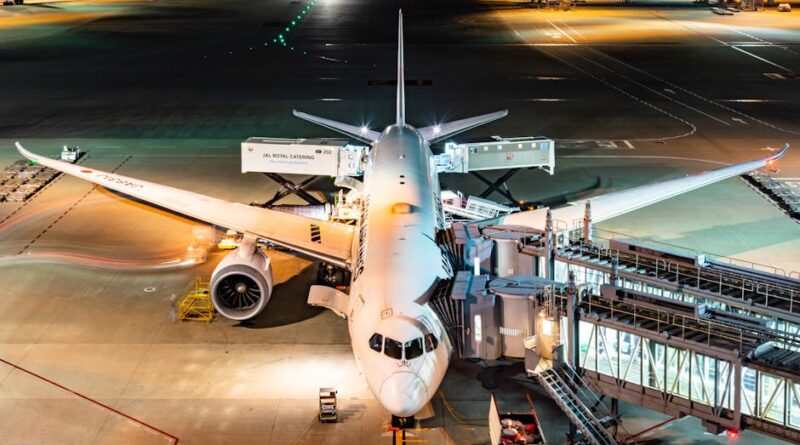How to Combat Jet Lag for Fast Sleep
How to Combat Jet Lag for Fast Sleep
Jet lag is a common issue faced by travelers crossing multiple time zones. It can disrupt your sleep, leave you feeling fatigued, and negatively impact your overall well-being. In this blog post, we will explore effective strategies to combat jet lag and ensure you get fast, restorative sleep after your travels. Whether you’re a frequent flyer or an occasional traveler, these tips will help you adjust to new time zones quickly and efficiently.
Understanding Jet Lag
Jet lag, medically referred to as desynchronosis, occurs when your internal body clock, or circadian rhythm, is out of sync with the local time at your destination. This misalignment can result in a range of symptoms, including:
- Difficulty falling asleep or waking up
- Excessive daytime sleepiness
- Fatigue and lethargy
- Difficulty concentrating
- Digestive issues
According to the American Sleep Association, jet lag affects millions of travelers each year. The severity of symptoms can vary based on factors such as the number of time zones crossed, the direction of travel, and individual differences in circadian rhythms.
Pre-Flight Preparation
Adjust Your Sleep Schedule
One of the most effective ways to combat jet lag is to gradually adjust your sleep schedule before your trip. Start by shifting your bedtime and wake-up time by 15-30 minutes each day to align with the time zone of your destination. This gradual adjustment helps your body adapt to the new schedule more easily.
Stay Hydrated
Dehydration can exacerbate the symptoms of jet lag. Drink plenty of water in the days leading up to your flight and continue to stay hydrated during your journey. Avoid excessive consumption of alcohol and caffeine, as they can dehydrate you and disrupt your sleep patterns.
Pack Sleep Essentials
Bring along items that can help you sleep better during your flight and at your destination. Consider packing a neck pillow, eye mask, earplugs, and a lightweight blanket. These items can create a more comfortable and conducive sleep environment, whether you’re on a plane or in a hotel room.
During the Flight
Choose the Right Flight
Whenever possible, choose a flight that arrives in the late afternoon or early evening at your destination. This gives you a better chance of adjusting to the local time and allows you to go to bed at a reasonable hour.
Set Your Watch to Local Time
As soon as you board the plane, set your watch to the time at your destination. This mental shift can help you start adjusting to the new time zone even before you land.
Get Up and Move
Sitting in one position for an extended period can lead to stiffness and discomfort, making it harder to sleep. Take short walks around the cabin, stretch your legs, and do some light exercises to keep your blood flowing and reduce the risk of deep vein thrombosis (DVT).
Post-Flight Strategies
Expose Yourself to Natural Light
Sunlight is a powerful cue for resetting your circadian rhythm. Spend time outdoors during daylight hours, especially in the morning. Natural light helps regulate your body’s internal clock and promotes wakefulness during the day, making it easier to sleep at night.
Avoid Napping
While it may be tempting to take a nap after a long flight, doing so can make it harder to adjust to the local time. If you must nap, keep it short (20-30 minutes) and avoid napping late in the day. This will help you feel more tired at bedtime.
Establish a Bedtime Routine
Creating a consistent bedtime routine can signal to your body that it’s time to wind down and prepare for sleep. Engage in relaxing activities such as reading, taking a warm bath, or practicing mindfulness meditation. Avoid screens (phones, tablets, TVs) at least an hour before bed, as the blue light emitted can interfere with melatonin production.
Additional Tips for Better Sleep
Consider Melatonin Supplements
Melatonin is a hormone that regulates sleep-wake cycles. Taking a melatonin supplement can help you fall asleep faster and improve the quality of your sleep. Consult with a healthcare professional before using melatonin, as the appropriate dosage and timing can vary based on individual needs.
Limit Stimulants
Avoid consuming caffeine and nicotine close to bedtime, as they can interfere with your ability to fall asleep. Opt for calming beverages such as herbal tea or warm milk instead.
Create a Comfortable Sleep Environment
Ensure your sleep environment is conducive to rest. Keep your bedroom cool, dark, and quiet. Use blackout curtains, white noise machines, or earplugs to minimize disruptions. Invest in a comfortable mattress and pillows to support a good night’s sleep.
Conclusion
Jet lag can be a challenging aspect of travel, but with the right strategies, you can minimize its impact and enjoy fast, restorative sleep. By preparing ahead of time, staying hydrated, adjusting to the local time, and creating a comfortable sleep environment, you can effectively combat jet lag and make the most of your travels. Remember, everyone’s body is different, so it may take some trial and error to find the methods that work best for you. Safe travels and sweet dreams!

